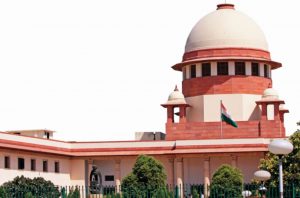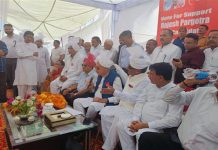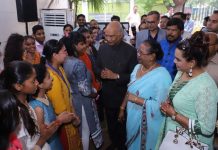 Tehelka has been in the forefront in building opinion against tainted politicians. Our very recent story “Dissuade candidates with criminal background” exposed credentials of candidates who had been booked and convicted in serious criminal cases related to rape, murder, attempt to murder and kidnapping in recently concluded Delhi election and Lok Sabha elections held in 2019, 2014, 2009 and earlier.
Tehelka has been in the forefront in building opinion against tainted politicians. Our very recent story “Dissuade candidates with criminal background” exposed credentials of candidates who had been booked and convicted in serious criminal cases related to rape, murder, attempt to murder and kidnapping in recently concluded Delhi election and Lok Sabha elections held in 2019, 2014, 2009 and earlier.
The report of Association for Democratic Reforms and National Election Watch is an eye opener. In 2019 Lok Sabha election, out of the 7,928 candidates who contested election, 1500 (19 per cent) candidates had declared criminal cases against themselves.
And mind it this has been continuing election after election. Out of 8,205 candidates analyzed during Lok Sabha elections in 2014, 1404 (17 per cent) candidates had declared criminal cases against themselves.
Similarly, out of 7810 candidates analysed during Lok Sabha elections in 2009, 1158 (15 per cent) candidates had declared criminal cases against themselves. And mind it these criminal cases are very serious cases including cases related to rape, murder, attempt to murder, kidnapping, crimes against women etc. This is alarming trend.
Not only this, the growing money power is another ill that is there to be seen during elections as average assets per candidate contesting in the Lok Sabha Elections 2019 was 4.14 crore.
It may be recalled that in September 2018, a five-judge Constitution bench had unanimously held that all candidates would have to declare their criminal antecedents to the EC before contesting polls. Subsequent to this, on October 10, 2018, the EC issued notification regarding the amended Form-26 and directed all political parties and candidates to publish their criminal antecedents. However, it had not helped curb criminalization of politics.
A bench of Justices R F Nariman and S Ravindra Bhat has asked the Election Commission (EC) to come up with a framework within one week, which can help curb criminalization of politics in nation’s interest. It asked the advocate-petitioner Ashiwini Upadhyay and the EC to sit together and come up with suggestions which would help curb criminalization of politics.
To cleanse the electoral system, the Supreme Court has directed all political parties to upload on their respective websites, on social media platforms and in newspapers, details of criminal cases pending against candidates and to mention the reasons for giving tickets to such tainted persons at the expense of clean candidates.
It is time that political parties realize that winnability can’t be a substitute for morality. Fast tracking of cases against politicians could also dissuade criminals to enter politics. It is for the EC to keep a hawk’s eye on delinquent parties and candidates to enforce the order as the
failure to do so could be read as contempt.













